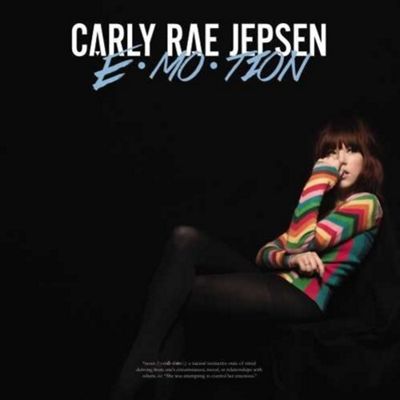
And on this track, this crush isn't silly or girlish or something to be ashamed of here, feelings are all-consuming, things to be wrestled with, things that take time. It's yet another song that's striking in its emotional mapping and specificity-the agony and ecstasy of a crush, yes, but of a crush at the point where you can pretend that it doesn't exist (but it does-the fact that you're pretending just proves the point). And the chorus: "But if there's something between you and me / Baby, I have no time for it / I'm happy not knowing / And please don't stir it up / I'm sure it's nothing but some heartburn, baby." "I fight, I fight / All my feelings for you all night, all night / Don't stare, don't stare / I've got feelings for you I hide, I hide," Jepsen confides on the first verse. There's also " Happy Not Knowing," an ode to trying-maybe failing-to protect your heart.

It's arguably the best example of why her music is so resonant: Over airy hooks, she can subtly yet radically reshape the politics of an entire emotional landscape. But, here, Jepsen takes stock of the situation-and of herself-and is aware of who she is and what she wants and how she feels. In the same story, told by someone else, the narrator might be portrayed as crazy or overcommitted or too expectant too soon. Jepsen continues, asking: "Is this too much?" You get the sense that she wouldn't change being too much even if the answer were yes.
Emotion carly rae jepsen full#
Take Swift's " Delicate," a relatable song about worrying over a romance in its fragile early stages, in which there's a dive bar on the East Side ("where you at"), metaphorical mention of a mansion ("with a view"), and a reference to a man's "girls back home." There's no such geography in Jepsen's "Too Much." Rather, what makes it personal is that the feeling itself is keenly specific: The relationship is fragile not only because it's early days-but also because the narrator does everything too fully, too richly, too full of feeling. Jepsen, meanwhile, says next to nothing about the experience that led to that feeling (in fact, she much prefers to cut right to it). Notably, this is a distinction between Jepsen and Swift: The latter's music is personal because she describes a broadly familiar feeling and then salts it with details about her own experience. And that's because its emotional details feel personal, even though Jepsen doesn't offer anything about herself. I don't know if other women who've been told that they're too much, too loud, too too sat bolt upright when they first heard this song, but I did. "When I party, then I party too much / When I feel it, then I feel it too much / When I'm thinking, then I'm thinking too much / When I'm drinking, then I'm drinking too much," she confesses.

In a way, it encapsulates the core of Jepsen's artistry: her lyrics of excess that distill what it's like to have too much passion, too much sentiment. Consider "Too Much," the bouncy eighth track on the new album.


 0 kommentar(er)
0 kommentar(er)
